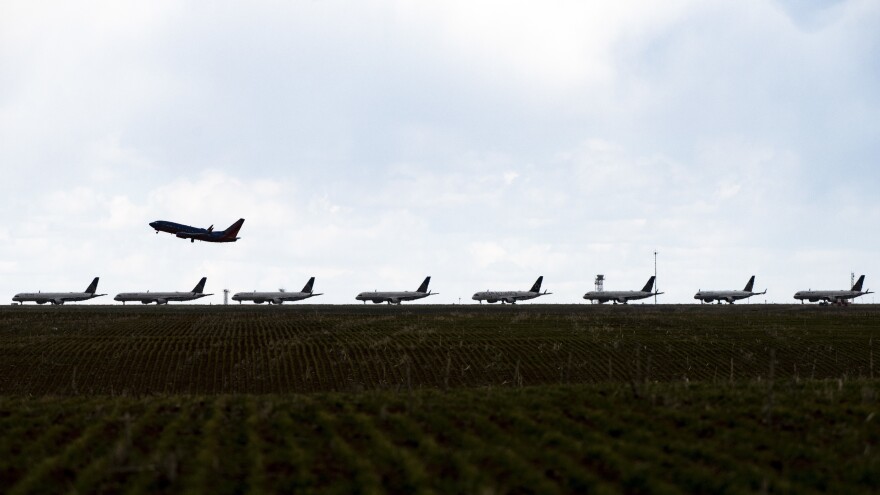The U.S. is regulating greenhouse gas emissions from commercial aircraft for the first time. But critics are saying the rules will be ineffective.
The Environmental Protection Agency said Monday the rules are being finalized after first being made public in July.
The rules — modeled after international standards — require aircraft manufacturers to use fuel-efficient engines that release less heat-trapping carbon dioxide.
They require all new aircraft sold to commercial airlines to meet the requirements by 2028. The EPA acknowledges many already do.
EPA is not projecting emissions reductions as a result of the rules, according to Reuters. The agency also does not believe the rules "will cause manufacturers to make technical improvements to their airplanes that would not have occurred" already.
The rules, when proposed, helped the U.S. avoid a lawsuit that would have compelled the government to regulate aircraft emissions anyway, according to the New York Times.
Commercial aircraft make up about 3% of the country's overall greenhouse gas emissions, and before the reduction in travel caused by the pandemic their share was growing. Unlike other industries, aircraft emissions have not been regulated until now.
Airlines for America, an industry advocacy group, applauded the new standards in July when they were first proposed. Nancy Young, environmental affairs vice president, said in a statement the rules are "good for our industry, for our country and for the world."
Boeing, one of the world's largest manufacturers of commercial aircraft, said the rules would be a "major step forward for protecting the environment and supporting sustainable growth of commercial aviation and the United States economy."
Environmentalists say the move largely maintains the status quo — doing nothing in the fight against climate change.
And 11 U.S. states agreed. They urged the Environmental Protection Agency in October to strengthen the emissions standards, saying they would do little — if anything — to reduce overall emissions.
Environmental Defense Fund international counsel Annie Petsonk called it a "do-nothing rule."
"This rule is especially infuriating because there are effective ways for the aviation industry to modernize and decarbonize," said Liz Jones, an attorney at the Center for Biological Diversity's Climate Law Institute, in a statement Monday. "What we desperately need are technology-forcing standards to get the industry on track."
Jones called for President-elect Joe Biden to implement stricter environmental aviation regulations when his administration takes office.
"This is another industry handout," Jones said, "from an administration that's hell-bent on hamstringing efforts to tackle the climate crisis and maintain a livable planet."
Copyright 2021 NPR. To see more, visit https://www.npr.org.




